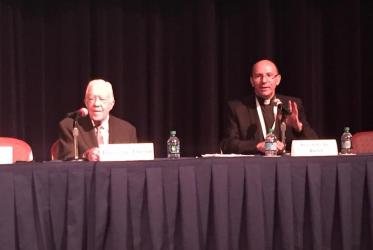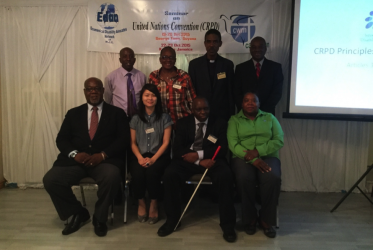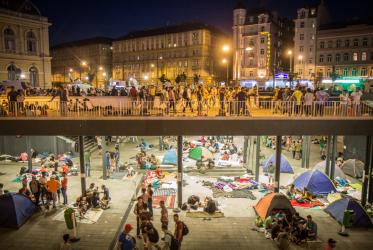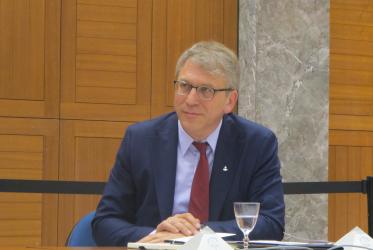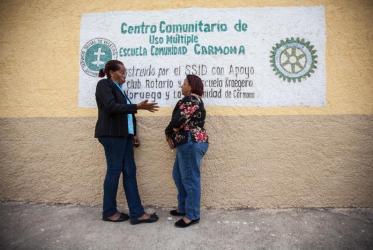Displaying 81 - 100 of 115
08 September 2016
WCC appeals for support, for all to stand #WithRefugees
31 August 2016
New Executive Committee members elected in Trondheim
28 June 2016
International affairs facilitator reflects on pilgrimage
31 March 2016
Symposium focuses on religion, violence, extremism
04 February 2016
European churches encouraged to work together to address refugee crisis
10 September 2015
Church leaders address statelessness in Dominican Republic
03 February 2015




